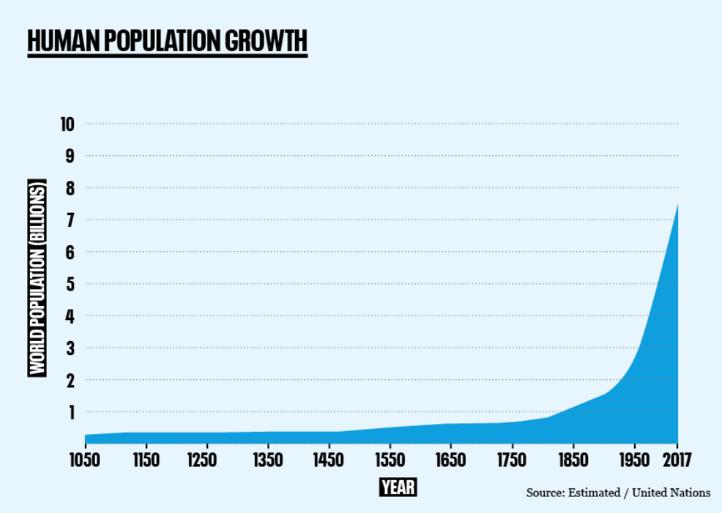Everything is awful, so let’s go down the philosophical rabbit hole and take another look at philosophical zombies, mind viruses, testable hypotheses, and how that relates to the idea that the universe is a simulation.
Fair warning: While I’m a decently-educated individual, I am wandering quite a bit outside of my formal training here. It is very possible that I am misunderstanding some of the science here or misusing terms the way that every New Age woo-woo guru misuses "quantum physics" on a regular basis. I’ve provided links to sources whenever possible, but still…

I’ve been writing and thinking about philosophical zombies for well over a decade at this point, so a quick refresher (with links) of some of the "givens" in this thought experiment.
The idea of a philosophical zombie is a "human" who is intelligent but without consciousness, and that operates like a complex version of the thought experiment of the "Chinese room." Such an entity does not comprehend what information is going in or out of it, but simply processes data according to a set of rules, e.g. "If you hear the noises ‘How’re ya now?’, respond with noises ‘Not so bad, and you?’"
Testing for the existence of a philosophical zombie is difficult. Both the (real) Turing test and (fictional) Voight-Kampff test are really tests of processing speed and efficiency. They do not test for empathy or consciousness, but the complexity of the ruleset used to govern responses and the speed of the system in providing those responses.
The one thing I’ve been able to think of that holds up is that a philosophical zombie would be unable to reconcile a new or different paradigm that is outside of the ruleset it already has — something that was illustrated in Pontypool.
You look for introspection and self-consistency. See if the individual is resolving conflicting ideas and thoughts. Determine if they’re incorporating new information and ideas into their existing thoughts and world-view.
While that’s an interesting thought experiment, for something to actually be a hypothesis, it would need to be testable in some way. It should provide predictable results.

A Natural Experiment For Philosophical Zombies
There is one prediction this hypothesis can make: A philosophical zombie would be prone to a sort of thematic malapropism. The things it said might seem to make sense, or sound similar to other things that made sense, but do not work if you actually look at the meaning. The pattern of logic would still be there, but it would seem as if someone had played Mad Libs with it and not quite gotten it. A logical uncanny valley, if you will.
Can you think of any human-shaped creatures right now who don’t seem to “get” empathy (though they try to say “the right things”) and who seem utterly unable to have a coherent set of principles? Indeed, they will endorse completely opposing ideas (and lies) from one minute to the next with no sense of irony?
You can see this in action in this Daily Show clip from 2020, because the unexamined contradictions are just…something to behold.
You can also see it in the ways that bigots literally reuse the same phrasing and arguments again and again, parroting talking points from earlier "gay panics" in their current war against transgender people, or in countless examples around racism.
But in what has to be the spookiest "natural experiment" I’ve ever seen, this very concept seems to have become… well, evidence of itself.
The current right-wing fearmongering of the "woke mind virus" exactly fits how a philosophical zombie would try to use the concept. Once again, The Daily Show gives an overview and skewers the basic illogic… but doesn’t quite take it all the way.
The key difference between my hypothesis and the "woke mind virus" is also illustrated in that clip. I argue that a philosophical zombie would be unable to actually experience empathy and would be unable to integrate different and new paradigms… literally the things the right-wing claim that the "woke mind virus" would "make" you do.
That fundamental misunderstanding makes the right-wing’s "woke mind virus" a perfect example of the kind of thematic malapropism and misuse of an idea that you would expect to see from a philosophical zombie.
Or a bunch of con artists.
I’m not sure which of those is more reassuring.

A Possible Mechanism For Detecting Philosophical Zombies
If you want to go down the rabbit hole a bit further, we can be inspired by Peter Watts’ novel Echopraxia. (I’d encourage you to read both Blindsight and Echopraxia; my line of reasoning below is similar to Peter’s, but is not quite identical.)
In this case, we can posit that there is a possible way to use physiological processes to determine whether or not a human-shaped creature is a philosophical zombie or not.
It begins with the thesis that consciousness exists to resolve conflict. The classic example, cited by Radiolab back in 2007, is the final episode of MASH, but you can substitute the end of Wrath of Khan or Terminator 2, or any "the needs of the many" kind of decision. This is the sort of thing that consciousness is actually really good and relatively efficient at dealing with.
Such processing, though, is computationally expensive. I mean that quite literally; groups of neurons are literally activated during moral decision making, and can be observed with functional brain imaging.
Functional imaging studies demonstrate" ventromedial prefrontal cortex (VMPC) "activation during tasks probing moral cognition."
Therefore, one should be able to observe statistically significant physiological differences in the functional brain activity of a "conscious" human and a philosophical zombie. The same study actually notes (in the next sentence!) that:
Studies of clinical populations, including patients with VMPC damage, reveal an association between impairments in emotional processing and impairments in moral judgement and behaviour.
While it does not automatically follow that a philosophical zombie would be "less" moral in any objective sense from a "conscious" human, it does imply that there is decreased activation (and therefore, decreased glucose and energy) use in the physical brains of philosophical zombies.
The possible implications of this are… disturbing.
But let’s really go down the rabbit hole.

The Processing Power Of Simulating The Universe
The simulation hypothesis — which can be roughly summed up as "reality is a giant game of The Sims" — has definitely caught the attention of the Internet and philosophy undergrads all over, though scientists and philosophers hotly debate whether it can even be considered a real, testable hypothesis.
What is sometimes held up as evidence is the existence of (apparently) arbitrary limits in the universe. Sometimes that limit is cited as the Planck length (with a comparison to "pixel size"), sometimes the speed of light as a representation of computational speed.
Interestingly, the latter comparison is actually a curiously good "fit," since the speed of light does change… depending on the medium it is traveling through. The further away that medium is from pure vacuum, the slower the speed of light. Which would make sense — it’s more computationally expensive to model travel through water or air than it is through nothing. That’s why the "assume a spherical cow" metaphor exists.

But that focus on visual details reflects the experience of someone who is playing on a console, or with my son’s gaming rig, where they’ve got all the visuals cranked up to the max.
I, on the other hand, have an older laptop with an integrated graphics card. For many modern games to be playable at all for me, I need to have the resolution and graphics turned down. Which means that I am very acutely aware of anything that slows the game down further.
And the biggest culprit is not graphics.
It’s NPCs.
For example, when I play Minecraft, I have to pay attention and set the "mobcap" — that is, how many cows, sheep, monsters, and other critters are simulated by the program — to a pretty low number in order for the game to remain playable. A village in the game, particularly one with a lot of NPC villagers, brings my game to a complete standstill.
This holds true in pretty much any kind of simulation game. The more NPCs around, the more computational power you need. And the more complicated the behavior of those NPCs, the more computational power you need.
In Minecraft, I use a "mod" for the game to keep it playable. This mod does one thing: it determines if a player is near the NPC villager, and if there’s no player nearby, the mod massively simplifies the behavior of the NPC.
This is true of most simulation games. The programmers (or modders after the fact) try to simplify the NPC behavior. Perhaps that’s through wayfinding shortcuts, repeated attack patterns, or conversational templates ("Hello! Stay a while, and listen!") that create something that acts realistically enough, but is not truly a simulation of a conscious entity. And as a result, you will often find NPCs acting… strangely.
And so, keeping the rest of this post in mind, I present you with this graph.

